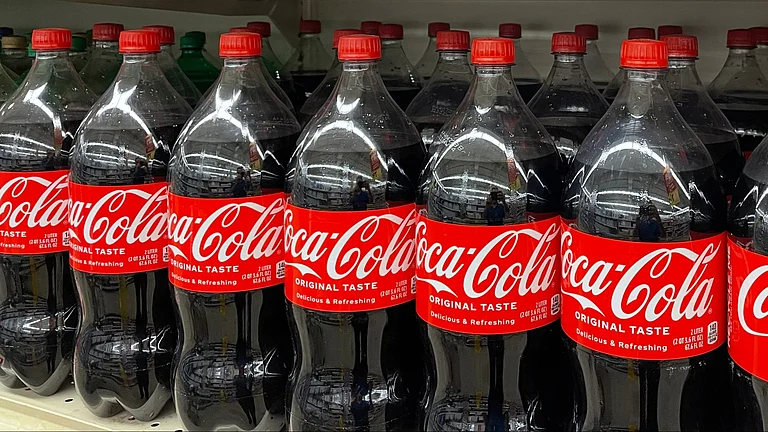An aggressive pricing with higher margins to retailers by Campa Cola, a brand owned by Reliance, has disrupted the market and increased competition in bottled beverages, forcing it also to reduce prices, said Tata Consumer Product Ltd (TCPL) Managing Director and CEO Sunil D'Souza.
The revenue from the ready-to-drink business of TCPL, the Tata Group FMCG arm, declined 11 per cent to Rs 154 crore in the September quarter owing to "competitive pricing action", said D'Souza during the company's post-earnings call on Friday late evening.
Reliance Retails Campa Cola has disrupted the beverage market with its Rs 10 pack in PET bottle, forcing the rival beverage makers to reduce their prices to retain their market share and continue their growth.
When asked, without naming Campa, D'Souza said, "A new player coming in with a different price point disrupted the industry. While on paper it is Rs 10 versus Rs 10, the other piece that you have, I mean... it didn't surface quickly enough, was that it was while the Rs 10 was the same to the consumer, the trade price was dramatically different.
"So, and the other big multinationals adapted their pricing on the trade very, very quickly. We did not," he added.
He further said TCPL was selling flavoured glucose-based ready-to-serve drink Gluco Plus at a 30 per cent premium to competitors and about 20 per cent premium to the multinationals in terms of price to retail.
"Now, just as a perspective, we know at that price to retail, that is not sustainable. And the loss is roughly Rs 1.50-2 per bottle," he said, adding, "This is a penetration strategy".
Therefore, TCPL has re-indexed Gluco Plus pricing, as it does not to lose its market, said D'Souza.
"I am here for the long haul, and I will not forgo market share. We have gone in there, we made the corrective actions, and we have taken down the price," he said, adding, "There is a level up to which you can charge a premium, not beyond that."
"We have corrected some other stuff happening through this thing because of the stress... when a business is stressed, there are ten other things which pile up. We took that in our stride in September and it's cleaned up. And we do expect, by the end of this quarter we should be back to our 25-30 per cent growth levels."
Although Campa's availability is still limited in some markets, it offers more affordable pricing than its rivals such as Coca-Cola and PepsiCo.
While the latter two brands sell 250 ml bottles for Rs 20 each, Campa is selling 200 ml for Rs 10.
Campa was acquired by the country's leading retailer Reliance Retail in August 2022 from Delhi-based Pure Drinks Group, in a deal that was estimated to be around Rs 22 crore.
This has led to the entry of billionaire Mukesh Ambani-led Reliance Industries into the fast-growing beverage market as per its ambition to become a formidable FMCG player.
Nuvama Institutional Equities in its report said, "Campa Cola's aggressive pricing strategy, at Rs 10 per PET bottle, is causing significant disruption in the beverage market. Even Dabur and TCPL have acknowledged the disruptive impact of Campa Cola. Despite the early stages of Campa Cola's entry, we have consistently highlighted its potential impact on the market."
Though investors often dismiss the impact of Campa Cola, citing taste as a primary concern, however, it believes that in the FMCG industry, "pricing, packaging, branding, and distribution play a more significant role than taste".
"Indian consumers are highly price-sensitive and open to trying new products that offer value. We forecast Campa Cola having a substantial impact on incumbent beverage players over the next two-four years," it said.































